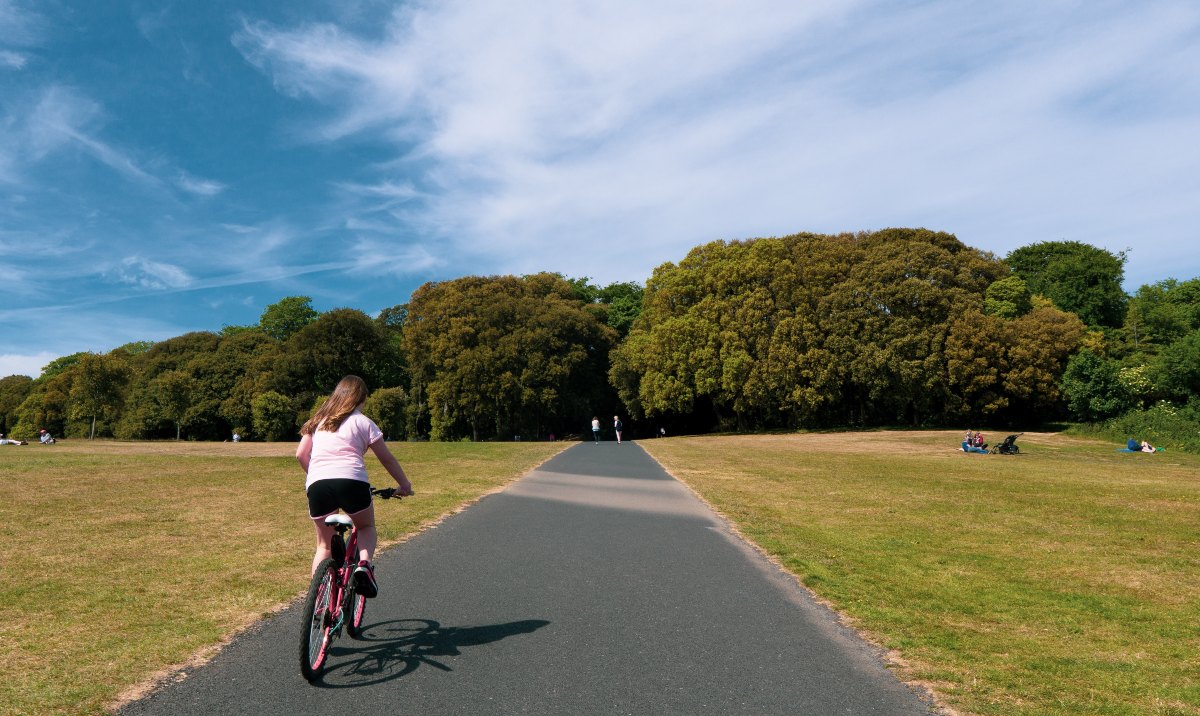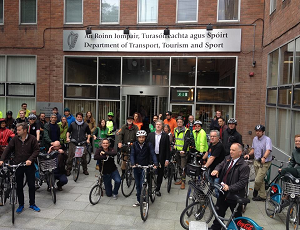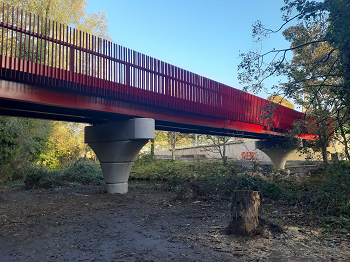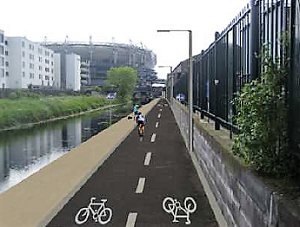
Wheels in motion for Ireland’s cycling revolution
Ireland has doubled down on its commitment to more cycling, dedicating €240 million towards cycling and walking infrastructure in 2021. The announcement follows well-coordinated advocacy and lobbying strategies executed by ECF Member, Cyclist.ie.
On 11 February 2021, the Irish National Transport Authority (NTA) announced it will be investing €240 million in cycling and walking infrastructure this year, a staggering €130 million increase compared to 2020.
In total, the NTA’s investment plan will support 468 projects across 12 local authorities, hospitals and education campuses, including 233 new projects. ECF welcomes this commitment to cycling, recognising it as a positive accession to last year’s declaration that Ireland will invest 10% of 2020’s total transport capital budget in cycling per year until 2022 (the lifetime for the current government).
The list of all 468 projects is publicly available on the NTA website.
Over the coming years we are hopeful that these projected investments will seriously alter the transport landscape and provide a springboard for the greater acceptance by the general public of active travel projects. – Damien O’Tuama, ECF Vice-President & Cyclist.ie Member
Cyclist.ie – Successful advocacy strategy bears fruit

Much of the credit for the €240 million announcement can be attributed to Cyclist.ie - The Irish Cycling Advocacy Network, a longstanding ECF member. The network’s successful promotion of cycling over recent years has showcased just how much influence a well-structured association can have on both national and local transport policy.
As part of their strategy, Cyclist.ie meets regularly with government transport officials to advocate on cycling policy and the quantity and quality of cycle infrastructure in Ireland. Each year, the cycling network makes pre-budget submissions promoting cycling as both a cost- and eco-efficient transport alternative.
On an activist level, Cyclist.ie conducts influential cycling campaigns and protests across the country, promoting the need for sufficient investment in cycling in Ireland (pictured right).
Cyclist.ie also works with local authorities via their Strategic Policy Committees, coordinating cycling advocacy with a wide array of local groups across the country. It is through these local groups that Cyclist.ie shapes local policy and practices and ensures that high-quality cycle routes are available nationwide.
Crucially, ahead of the Irish general election in February 2020, Cyclist.ie conducted systematic lobbying of all political parties to shape their political manifestos. After the parties’ manifestos were published, Cyclist.ie compared each one against ten key demands for improving cycling. This work stimulated a strong media interest in cycling, with The Irish Times publishing a detailed article on each party’s stance on cycling.
Ireland’s green recovery

February’s €240 million announcement follows what was a landmark year for cycling in Ireland.
Like many other European countries in 2020, Ireland witnessed a major shift towards cycling due to the widespread lockdown measures caused by the COVID-19 pandemic. As more and more people recognised cycling as the most viable means of transport during the crisis, the increase in demand for more cycle lanes led to several temporary bicycle lanes being implemented across the country.
Cyclist.ie has been championing the development of these trial projects even before the pandemic and are happy to see that many have earned a place in the NTA’s investment plan for 2021.
One of the plan’s most well-funded projects for 2021 is the Dodder Greenway in Dublin. Functioning as both a commuter and a leisure route, the Greenway will have significant infrastructural elements, including four major cycling and walking bridges (pictured above).
In addition to this, Dublin City’s Royal Canal Greenway project will receive over €5million in funding this year. The Greenway will be a critical link in the Irish section of the EuroVelo 2 route, which runs from Dublin To Galway (pictured below).
With Ireland’s National Recovery and Resilience Plan expected to receive up to €853 million in grants from the EU’s Recovery and Resilience Facility (RRF) in 2021 and 2022, projects such as this are an ideal realisation of ECF’s recommendations for investing RRF money in cycling in order to reach the ambitious sustainability targets set out in the European Green Deal.
Long-term plans
While the €240 million commitment to walking and cycling is a welcome announcement, there is still much more to be expected from Ireland. The announcement is still €120 million short of the €360 million declared in the current Programme for Government, which promises to prioritise sustainable transport in Ireland by investing 20% of the 2020 capital budget (€360 million) per year in cycling and pedestrian projects. This includes:
- 10% of the total transport capital budget for cycling projects
- 10% of the total capital budget for pedestrian infrastructure.
This commitment is in line with ECF’s recommendations as part of the EU Cycling Strategy, which calls for at least 10% of EU Member States’ annual transport budgets to be dedicated towards cycling in order to achieve effective modal shift by 2030.

ECF would like to commend the efforts of all our members in ensuring more and better cycling for all in Europe. If your member organisation would like to collaborate on an article similar to this, please contact the author at c.delaney@ecf.com.
Cover photo: St. Anne's Park, Shankhill, Dublin, Ireland
Courtesy of Duy Thanh Nguyen via Unsplash.com
Regions:
News category:
Contact the author
Recent news!
Upcoming events
Contact Us
Avenue des Arts, 7-8
Postal address: Rue de la Charité, 22
1210 Brussels, Belgium









